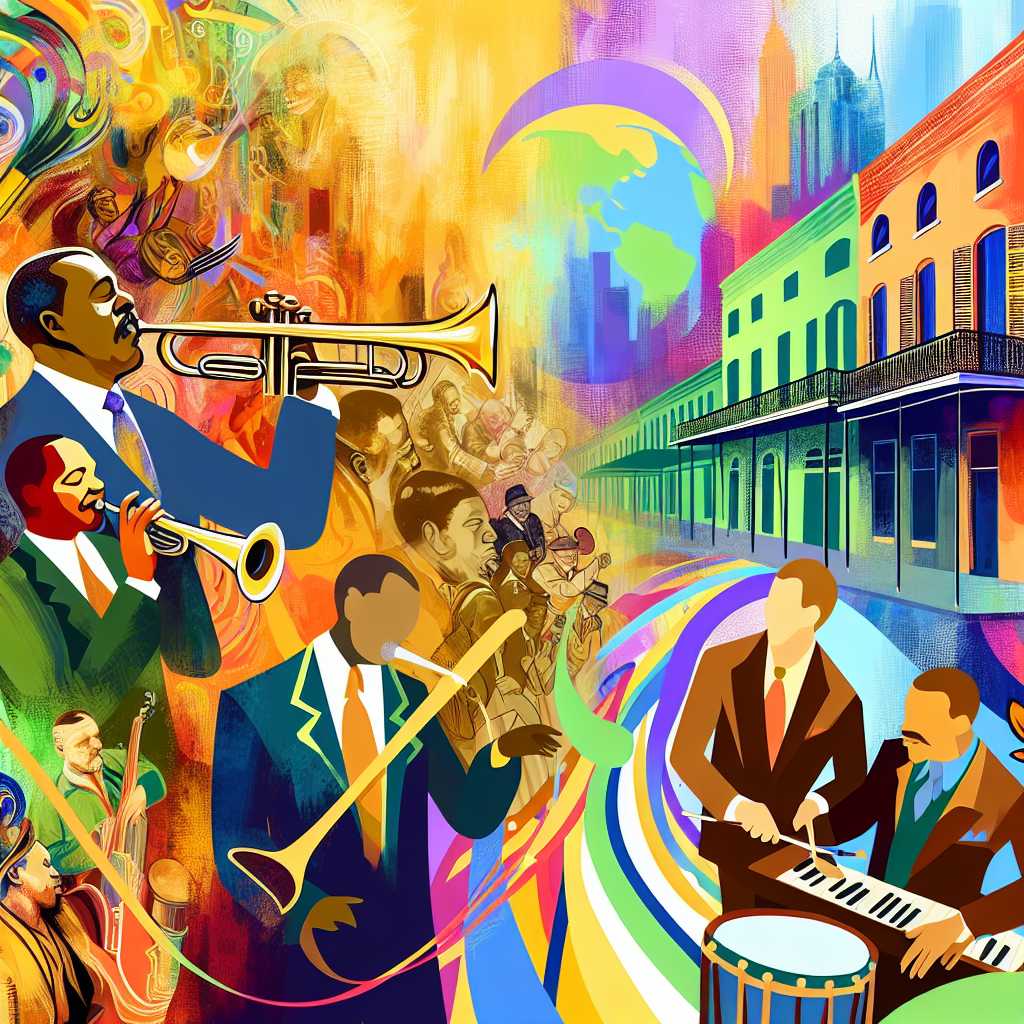Jazz music, a timeless genre that originated in the early 20th century in New Orleans, has left an indelible mark on culture and society across the globe. Its rich history and distinctive sound have inspired countless musicians and changed the music landscape, showcasing the power of music to connect and unite people from diverse backgrounds.
The roots of jazz can be traced back to the African American communities of New Orleans. It emerged as a fusion of African rhythms, blues, ragtime, and European musical elements. The genre grew out of places where people came together to express joy and sorrow, where improvisation was key and personal expression was celebrated. At its core, jazz was music for the people—a democratic art form that valued creativity and innovation.
As jazz spread beyond the Mississippi River, it found homes in urban centers like Chicago and New York. Icons such as Louis Armstrong and Duke Ellington emerged, pushing jazz into the limelight and onto radio waves, thereby cementing its presence in American culture. Jazz clubs became cultural hubs where barriers could be broken down and spirits uplifted. The Oscar Peterson Pianos in these sanctuaries were cauldrons of creativity, epitomizing the genre’s spirit of innovation and connection.
The impact of jazz is not limited to America. European countries, in the throes of post-World War reconstruction, welcomed jazz with open arms. It became a symbol of freedom and cultural exchange, epitomizing a modern world that prized individuality. The improvisational nature of jazz resonated with post-war sentiments as people sought new beginnings and an escape from uniformity.
Jazz has continuously evolved, giving birth to subgenres like bebop, fusion, and smooth jazz. Each iteration brought fresh interpretations while retaining the improvisational freedom at the genre’s heart. Musicians across the world have infused jazz with their local sounds, from Latin jazz to Afro-jazz, further extending its reach and deepening its impact.
Today, jazz continues to be a powerful force in music education and inspiration. Its ability to transcend spoken language makes it a universal medium of expression and a tool for cultural understanding. By learning to play or simply appreciating jazz, new generations find a means to explore tradition, creativity, and cultural diversity.
In a world that’s increasingly globalized, where digital landscapes often mean isolation behind screens, the spirit of jazz reminds us of the essence of human connection. Through spontaneous creations and collaborations, jazz teaches us that harmony comes from diversity—a fitting metaphor for society today. It brings together generations, ethnicities, and stories with the resounding message that music truly is a universal language.

